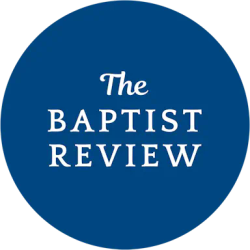Nearly two decades have passed since Al Mohler published his seminal article, “A Call for Theological Triage and Christian Maturity.” While Dr. Mohler was not the first to put forward a taxonomy that sorts doctrines according to their importance—this practice goes back to the Protestant Reformation—the simplicity and insight of his “triage” metaphor have made it a cornerstone for subsequent theological reflection and discussion. It played a foundational role in Gavin Ortlund’s book, Finding the Right Hills to Die On: The Case for Theological Triage (Crossway, 2020), as well as my own book, When Doctrine Divides the People of God: An Evangelical Approach to Theological Diversity (Crossway, 2020).
In medicine, the triage (from a French word meaning “to sort”) distinguishes between those matters requiring urgent medical attention and those which are less urgent. On a battlefield, a medic may use triage to determine which lives can be saved and those which are beyond saving. In a hospital emergency room, a triage nurse will determine who needs to be seen by a doctor first. Those who have had life-threatening injuries or a heart attack will be seen before someone who has a slightly elevated fever or a sprained ankle.
Mohler argued that Christians must deal with doctrinal differences in a way akin to medical triages, distinguishing between differences which are crucial to address and others of lesser significance. Mohler offered three categories for this sorting process:
- First-tier issues are the doctrines that are “most central and essential to the Christian faith,” such as the doctrine of the Trinity, the deity of Christ, and the authority of Scripture. In Mohler’s understanding, “Those who deny these revealed truths are, by definition, not Christians.”
- Second-tier issues are distinctive doctrines and practices around which different denominations and faith traditions are organized. Mohler cites the differences between Baptists and Presbyterians regarding baptism as a second-tier difference. These differences do not keep Baptists and Presbyterians from recognizing one another as faithful Christians, but they do prevent them from cooperation at the local church or denominational level.
- Third-tier issues are doctrines over which Christians in close fellowship disagree. Differences between Christians in a local church or within a denomination typically fall into this category, such as different interpretations of biblical covenants or the millennial reign of Christ.
Doctrinal taxonomies from other theologians follow similar structures, even if they vary in the number of tiers they utilize.
Criticisms of the Theological Triage
Several objections have been raised against Mohler’s metaphor and the practice of sorting doctrines into essential and non-essential categories.
One objection is that the Bible does not provide a method for distinguishing between essential and non-essential doctrines. It is said that taxonomies like the triage are extrabiblical tools not prescribed by Scripture. According to this view, triages are themselves non-essential, and potentially subversive to biblical authority.
While it is important to place our theological method under the supreme authority of Scripture, we must also recognize that the Bible must be interpreted. We regularly use extrabiblical tools like hermeneutics, linguistics, historical resources, and systematic theology to help us understand and apply the Bible.
Most theological differences between evangelical Christians arise from differing interpretations of the Bible. Even those who affirm the full inspiration and inerrancy of Scripture and want to be under its supreme authority will disagree on the meaning of various texts. Our belief in the clarity of Scripture does not mean that everything in it is equally plain or clear.
One reason Paul and other New Testament writers did not include explicit instructions for sorting out different interpretations of Scripture is that the first-century church had a resource that twenty-first-century Christians do not: the apostles themselves. The apostles, under the direct inspiration of the Holy Spirit, were available to settle interpretive disputes. If a disagreement arose about how best to understand Romans 9, the New Testament church could have asked Paul or one of his associates to explain its meaning.
While the New Testament does not provide a concrete method for categorizing doctrines by importance, patterns of doctrinal taxonomy can be found within its pages. In 1 Corinthians 15:3, Paul emphasizes the importance of the gospel message he received. Paul addressed many important issues in his letter, none of which could be labeled unimportant, but getting the gospel right was most important to him.
The apostles had much to say about the dangers of false teaching that could infiltrate the church. But they also encouraged unity in purpose and mission and admonished believers not to “argue about disputed matters” (Rom 14:1). The “disputed matters” in Romans 14–15 concerned how one applied dietary and sabbath laws. Paul encouraged the church to glorify God “with one mind and one voice” (Rom 15:6) but did not require uniformity of thought and practice.
Another critique of Mohler’s triage is that it leads to theological minimalism, effectively denying the need for essential doctrine. But this criticism overlooks the balance Mohler tried to strike in his original article. Mohler never argued that second-tier or third-tier doctrines are unimportant, or that these doctrines can’t be rooted in correct interpretations of Scripture. He argued that mature Christians know how to distinguish between those theological matters which matter most to becoming or staying a Christian, those matters which draw our lines of cooperation, and those matters where Christians have some liberty to disagree with one another.
That we affirm Christ’s return is important and essential, but how we understand the timetable of Christ’s return is open to debate. We must affirm Scripture that teaches us about God’s saving work in election, even if we disagree about what that Scripture means. We can recognize others who affirm biblical authority as faithful brothers and sisters in Christ, even if we don’t see eye-to-eye with them about what every text means. At the same time, we must oppose doctrines and practices that are in clear opposition to biblical teaching. This is what a mature, responsible use of the theological triage looks like in practice.
Are First-Tier Doctrines Urgent or Essential?
Some criticize Mohler’s triage for being unclear in its application, particularly in what we label a “first-tier” issue. Some contend that first-tier issues are any issues that need to be addressed with urgency, hence the emergency room metaphor. But in Mohler’s original explanation of the triage, he didn’t call all urgent matters first-tier issues. He explicitly labeled first-tier issues those essential doctrines that, if denied, make a person an unbeliever.
As post-Conservative Resurgence Southern Baptists, we can agree that anyone who denies biblical inerrancy has a doctrinal problem that must be urgently addressed. But most of us would also agree that a person could still be a Christian without necessarily affirming this doctrine. We recognize this doctrine is foundational to our faith and practice, but we also recognize that we have brothers and sisters who have denied it in error.
If we use “first-tier” to describe doctrines that are merely important for us to address, then inerrancy would fall squarely in this category. But if we understood “first-tier” to describe those doctrines which are essential to becoming a Christian, then inerrancy would not be a first-tier issue.
Is complementarianism now a first-tier issue, as some have recently suggested?
With our affirmation of the BFM 2000 and the actions taken at our most recent annual meeting, Southern Baptists have made it abundantly clear that they believe the office of the pastor to be limited to men. Because we believe Scripture is clear on this issue, we have reiterated that we do not believe this to be a third-tier issue over which we can “agree to disagree.” We have drawn a line in the sand and said that complementarian doctrine is a boundary marker required for participation in our convention of churches. We have agreed that this is an urgent matter for our denominational cooperation.
But if clarity matters, it is also important for us to distinguish between first-tier doctrines that are essential to the gospel and those doctrines which are urgent for us to address. If we do not make this distinction, we are in danger of confusing an important theological implication of the gospel with the gospel message itself.
Furthermore, if first-tier doctrines only describe urgent doctrines, then they are fluid and mutable. The goal posts will move with every subsequent controversy. But if first-tier doctrines describe those which are essential to Christian belief in the soteriological sense, then they are immutable and fixed. First-tier issues never change.
Defining first-tier doctrines as essential, fixed, and objective truths has historical precedent. The seventeenth-century Lutheran theologian Rupertus Meldenius (1582–1651) maintained that essential dogmas are (1) beliefs necessary for salvation, (2) beliefs stated explicitly in Scripture, (3) beliefs universally recognized by Christian creeds, and (4) those agreed upon by the church as necessary. In these matters, Christians must be unified. These beliefs distinguish the people of God from unbelievers and heretics.
Because evangelicals don’t believe in a magisterium that offers official interpretations of Scripture, how we sort second- and third-tier doctrines will vary from group to group and individual to individual.
A group like the Southern Baptist Convention with a broader confession like The Baptist Faith and Message may look upon differing understandings of effectual calling as a third-tier issue. But a group whose shared confession is the 1689 Baptist Confession of Faith may see a Reformed view of effectual calling as a second-tier issue that determines the boundaries of cooperation and fellowship.
While second- and third-tier issues may fluctuate with time and the sorts of fellowships that we form, those issues that we label “first-tier” should never change.
Two decades later, we can still appreciate Dr. Mohler’s original call for theological triage and Christian maturity. We must avoid the extremes of sectarianism and theological compromise, and instead pursue a balanced and biblical approach to Christian unity. The doctrinal triage is not a perfect tool, but it can be a useful one for cultivating mutual understanding and respect among Christ followers.
Editor's Note: As a part of its commitment to fostering conversation within the Southern Baptist Convention, the Baptist Review may publish editorials that espouse viewpoints that are not necessarily shared by the TBR team or other contributors. We welcome submissions for responses and rebuttals to any editorials as we seek to host meaningful conversations about the present and future of our convention.


